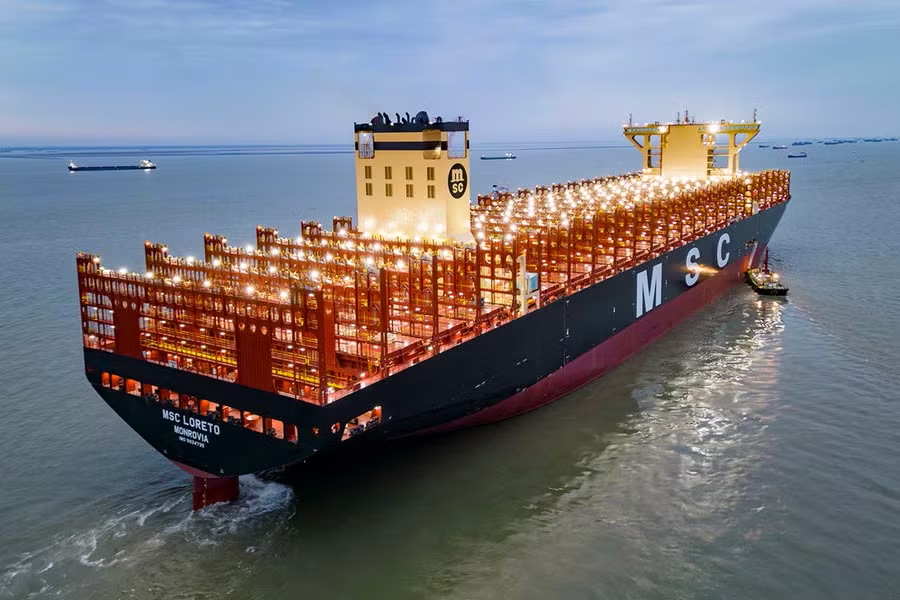The maritime industry has always been the backbone of global trade, facilitating the movement of goods across oceans and continents. Within this dynamic sector, shipbrokers play an essential role, bridging the gap between shipowners and charterers to ensure seamless shipping operations. Platforms like SHIPNEXT provide modern tools to complement this critical profession, enabling smoother transactions and increased efficiencies.
Dry Bulk Shipping Industry Status in February 2025
As of February 2025, the dry bulk shipping industry is navigating through a period of steady growth. Global demand for raw materials such as coal, iron ore, and grain has driven increased shipping activity. However, challenges like fluctuating freight rates, sustainability pressures, and geopolitical trade complexities persist.
While the market remains volatile, advancements in technology and global collaboration have introduced innovative solutions. Shipbrokers play a pivotal role in stabilizing this environment by securing favorable deals and ensuring cargo movements meet market demands effectively.
The Crucial Function of Ship Brokers
Shipbrokers act as intermediaries between parties in maritime trade. Whether negotiating freight agreements, finalizing vessel charters, or arranging sales and purchases, their expertise and insight are invaluable. The profession of shipbroking requires an intimate understanding of the shipping market, legal terms, and the needs of clients.
Key aspects of a shipbroker’s job include:
Negotiation — acting as a mediator to close deals that align with the interests of both parties.
Market intelligence — keeping abreast of shipping trends and providing accurate insights to their clients.
Documentation — managing the paperwork and contracts necessary to sign a successful shipping agreement.
Without skilled brokers, the maritime world would face setbacks in managing the complexities of trade and ensuring transactions move smoothly in a globalized market.
The Additional Value Provided by Ship Brokers
Shipbrokers go beyond merely facilitating deals; they offer added value that is indispensable in modern shipping. Here’s what they bring to the table:
Expertise and market knowledge. Shipbrokers possess unparalleled insights into the maritime market. They track freight rate fluctuations, vessel availability, and emerging trends, helping their clients make informed decisions. This knowledge is particularly beneficial in volatile trade environments, where timing and strategy are crucial.
Personalized service. Every deal in the maritime world is unique, and shipbrokers tailor their services to meet specific customer needs. Whether finding the right vessel for an urgent shipment or negotiating better terms during market downturns, brokers ensure that customers’ priorities are met.
Strong relationships with global stakeholders, including shipowners, charterers, and maritime authorities, allow brokers to secure opportunities and address client needs efficiently. These connections prove invaluable when solving logistical challenges in international trade.
Overcoming Obstacles
Shipbroking is not without its challenges. Fluctuating market conditions, demanding clients, and an evolving regulatory framework often test the resilience of brokers. Here’s how they overcome these obstacles:
Technology Adoption. Platforms like Shipnext help brokers streamline operations by automating processes such as matching cargo with vessels and negotiating deals.
Strong Communication Skills. Shipbrokers excel in maintaining open and clear communication with all stakeholders to address potential conflicts.
Adaptability. By staying aware of global trade developments, shipbrokers adapt their strategies to meet market demands and maintain relevance in the profession.
The fact remains that overcoming hurdles is part of what makes shipbroking a challenging yet rewarding career in the maritime industry.
Future Prospects of Ship Brokering
Looking ahead, the profession of shipbroking is poised for evolution. The growing emphasis on sustainability, digitization, and transparency will transform traditional practices. Key trends predicted for the future include:
Data-driven decision making. Real-time market data will play a pivotal role as brokers use technology to make smarter decisions.
Sustainability commitments. Brokers will need to align with environmental regulations by promoting sustainable shipping solutions.
Specialized services. Increased demand for niche services, such as renewable energy cargo shipping, will open new markets for shipbrokers.
The global maritime trade will always need experienced brokers to guide its operations. By staying innovative, shipbrokers will continue to add value and thrive in the evolving market landscape.
Conclusion
Shipbrokers are an indispensable part of international maritime trade, acting as the linchpins that help the world’s goods move efficiently. Their ability to negotiate, adapt, and innovate ensures global trade’s sustainability even amidst uncertainties. As this profession evolves, its importance in connecting markets, facilitating deals, and driving maritime success will remain undeniable.



